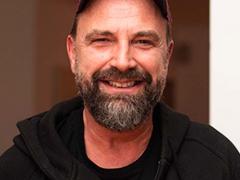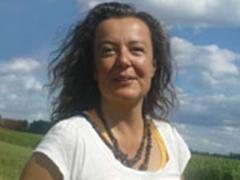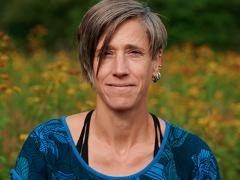- Embodiment
Module of the Somatic Pedagogy Training
This module serves the integration of all previous contents and is dedicated to the question of how the learned would like to embody or form on the further personal and/or professional path.
Based on the individual process documentation of the previous 9 modules, this module provides a framework for an individual-sovereign continuation and authorship of the contents in the future professional life. Constructive-critical self-reflection and self-assessment are consolidated.
The most important aspects of responsibility and ethics of the somatologist are touched upon.
Fulfilling all entry requirements (attendance & teaching samples), the final module leads to certification of the ability to communicate the training content to individuals and groups.
Ausführliche Seminarinformationen
Seminarleiter*innen

Kai Ehrhardt
ehrhardt@somatische-akademie.de
www.kaiehrhardt.com
Founder of the Somatic Academy Berlin, Breath Therapist/based on the work developed by Prof. Ilse Middendorf, Continuum Teacher and Heilpraktiker (Psychotherapy)
"I had the honor and privilege to learn from the two founders Prof. Ilse Middendorf (Perceptible Breath / Erfahrbarer Atem) and Emilie Conrad (Continuum) and I am pleased to be able to pass on this work." Since 2012, Kai has been developing professional trainings at the Somatic Academy as well as programs dedicated to the application of Somatics in everyday life. He has been a co-curator of the Body IQ festival since 2015. Since 2003, he has developed the approach "Authentic Eros", which integrates - as a somatic application - bodywork, relationship communication and group-dynamic processes in the area of personal and interpersonal development. He is a member of the professional associations Atem, Continuum and ISMETA.

Marion Evers
evers@somatische-akademie.de
Founder of the Somatic Academy Berlin, studied Theatre, French Linguistics & Political Science Cologne, Berlin, Marseille, M.A. "From Actor to Performer "1998, studies in Performance Arts, work in the field of directing/dramaturgy, speaker, moderator. The interest in a stronger integration of theory and practice leads to the foundation of the Somatic Academy, Embodiment Research, Body Phenomenological Foundations, Critical Somatics, Social Body & Body Politics in relation to somatic practices in their social and political relevance of "somatics" today.
Somatic Movement Educator (RSME/ISMETA), Somatic Yoga & Somatic Voice Trainer, Breath Therapist according to Prof. Ilse Middendorf, Yoga Teacher (BDY/EYU)

Heike Kuhlmann
www.heikekuhlmann.net
MSME, BMC®-Practitioner, dancer, -educator, choreographer, MA Performance Studies/Choreography
Heike is interested in the unfolding process of human beings. It is more than the individual unfolding, but in how people can meet each other at eye level through personal development and inclusion of structural conditions in her somatic facilitations. Being a condition to become Critical Somatics. She accompanies somatic processes in individual sessions, courses, workshops and trainings. Activism and somatics are interwoven in her artistic work. More information on: www.somatik-tanz-choreographie.de, www.heikekuhlmann.net
Anmeldeinformationen
BerlinSomatische Akademie Berlin
Paul-Lincke-Ufer 30
10999 Berlin | side building
1st backyard
4th floor
